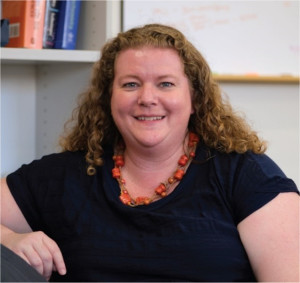Spotlight on rare disease research to benefit patients worldwide
Over 30 million people live with rare diseases across Europe alone. Meet the Kiwi involved in a Horizon Europe project that aims to leave no one behind by prioritising research into new treatments, prevention, and diagnostic pathways for rare health conditions.
On this page
The European Rare Diseases Research Alliance (ERDERA) involves over 180 partners from 37 countries who’ll work together over seven years to develop research in rare disease strategies.

Dr Louise Bicknell, Associate Professor at Otago University
Principle Investigator Dr Louise Bicknell from the University of Otago is the New Zealand Representative on the ERDERA governing board. She’s currently leading New Zealand’s involvement in two work packages that focus on data sharing and establishing an advisory committee to discuss the development of standards at an international level.
“ERDERA brings together over a thousand scientists, clinicians and advocates from Europe and beyond, who are united to help patients receive a diagnosis and help develop new treatments,” Louise says.
“At the moment, diagnoses for patients with rare diseases typically takes four years and 50 per cent of these patients never receive a definitive molecular diagnosis.”
New Zealand’s contribution
The first work package Louise is working on involves sharing New Zealand’s genetic data with international databases, where this has been consented and endorsed by data sovereignty agreements. Sharing this data between consortium partners will increase the likelihood of diagnoses for New Zealand families.
The second work package involves establishing a National Mirror Group. This will bring together academics, healthcare professionals, patient groups, and policymakers to support a stronger focus on rare disorders in New Zealand in healthcare, social care, and research priorities.
“As the New Zealand representative on the governing board of ERDERA, I plan to use my position to contribute to planning and future goals for ERDERA that will help New Zealand researchers, healthcare professionals, and families,” Louise says.
Making the connection with ERDERA
When Louise saw a government announcement about New Zealand’s association to Horizon Europe, she started searching for opportunities to participate in research focused on rare disease research.
“I saw that a large consortium programme was being put together so I emailed the coordinator asking if we could be involved. It all happened in a very short timeframe given their application deadlines, so I am grateful to the coordination teams at the University of Otago, ERDERA and MBIE for making it happen,” she says.
“Since becoming involved in ERDERA, the opportunities have been exciting. ERDERA’s goals are a dream wish list for rare disorders, and it’s inspiring to know we are now part of such a significant global initiative.”
Following in the footsteps of European research and innovation
Louise says many European countries are ahead of New Zealand's research and innovation in prioritising healthcare, especially when it comes to supporting health patients with uncommon illnesses.
“I hope to find opportunities for New Zealand to benefit from this established knowledge and infrastructure and learn how we can adapt advances they have made in Europe to work in a New Zealand context,” says Louise.
By the very nature of rare disorders, New Zealand's processes rely on global collaboration to find answers and knowledge for patients – something Louise hopes ERDERA will further develop.
“As a member of ERDERA, we also have the possibility to apply for research funding, where we can collaborate with international partners on research being undertaken in New Zealand,” Louise says.
“My personal research goal is to help as many New Zealand families as possible who are affected by rare disorders to obtain a diagnosis. Our participation in ERDERA will help by not only increasing our knowledge, but also by driving visibility of these disorders in New Zealand and the importance of research for healthcare prioritisation and planning.”
Advice for researchers
“Without New Zealand’s association to Horizon Europe, we wouldn’t be involved in ERDERA,” Louise says.
“This means we wouldn’t have access to the funding support and expert knowledge of this large alliance.
If Horizon Europe projects looks like they could advance your research and outcomes for New Zealand, get involved,” she advises.
“For me personally, I am proud to have instigated this opportunity for New Zealand.”
ERDERA builds on advancements made under the European Joint Programme for Rare Diseases (EJP RD), which ran for five years from 2019 to 2024.
More information
Find out about New Zealand's association with Horizon Europe:
Successful Horizon Europe Pillar 2 projects with New Zealand partners
Visit the ERDERA website to find out more about the project:
ERDERA - European Rare Diseases Research Alliance(external link) – erdera.org

